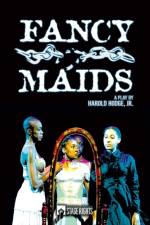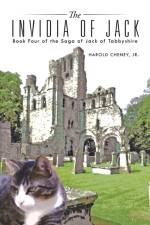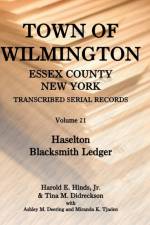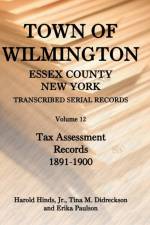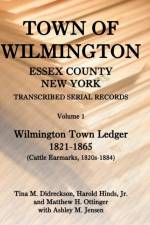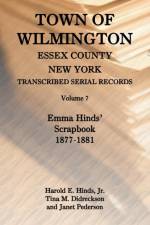- Volume 1, Town Ledger, 1821-1865 (Cattle Earmarks 1820s-1884)
av Harold, Tina Didreckson, Harold E Hinds & m.fl.
407
This volume is the first in a series devoted to presenting a transcription of the surviving serial manuscript records for the town of Wilmington, Essex County, New York, in the High Peaks region of the Adirondack Mountains. The first ledger book for the Town of Wilmington, "lost" for many years, covers the period from the founding of the town in 1821, until 1865 (except for cattle earmarks which are covered until 1884), and contains a record of the Town of Wilmington minutes, plus much more. The minutes of annual and special town meetings are included. Entries make special note of the persons elected or appointed to various offices: e.g., Town Clerk, Town Supervisor, Assessors, Commissioners of Highways, Overseers of Highways, Path Masters, Justices of the Peace, Overseers of the Poor, Tax Collectors, Election Inspectors, Sextons, Poor Masters, Scalers of Weights and Measures, and Superintendents of Schools. Votes are recorded for provisions for the poor and schools. Surveys of new roads, and occasionally new plats, are included. Highway taxes, in the form of corvee labor or days of labor owed by individuals, are recorded for every year. Earmarks for cattle are registered and illustrated. The original ledger is not consistently chronological and is often illegible; however, the authors have attempted to transcribe the entries as presented. Names have been faithfully transcribed, and it is not unusual to find the same name spelled several different ways. A full name index adds to the value of this work.





